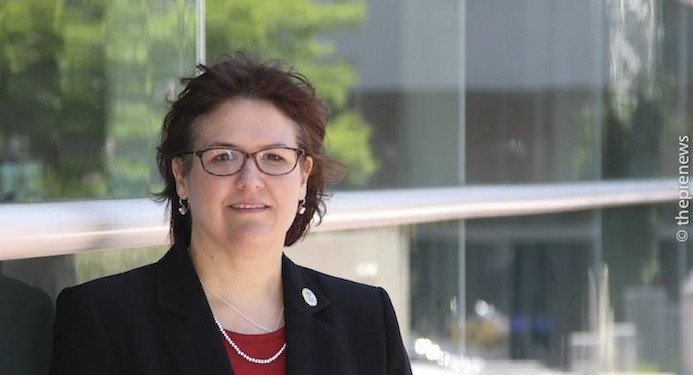The PIE: What have been some of the thorniest issues you have dealt with during your tenure (given issues around acceptance of accreditation for on-campus IEPs)?
KW: Well certainly trying to interpret and provide guidance and making sure we are providing that guidance in a clear fashion for everyone. It’s a learning experience when new law and new regulation comes into effect or in this case, enactment of a law that we had to implement. It’s been really important to us to get it right and get it clear.
The PIE: Is that particular issue resolved now? [IEPs that were accredited via “umbrella” institutional accreditation had to ‘prove’ their compliance was appropriate].
KW: It’s working its way through the system.
The PIE: Will you be issuing draft policy guidance on conditional admissions at IEPs?
KW: Yes, there will be movement on this very soon. We are releasing new draft guidance for comment which we have refined and we’re looking for feedback on that from the stakeholder community and hoping we can continue the dialogue and move forward towards final guidance.
The PIE: Do you foresee that there will always be avenues for conditional admission visa issuance?
KW: Yes, I think where we are going with this to try and not limit business practices necessarily, but to make sure that we are clear on programmes students are going into and what they are doing ; where are they studying and what are they studying.
“I think where we are going with this is to try and not limit business practices necessarily”
The PIE: One positive I have heard is that adjudication rates are much improved.
KW: Yes, we’ve made some great strides in reducing our backlog throughout our adjudications at SEVP. We still have work to do, but we hope with additional staffing that is expected over the coming year we will be able to get more cases through the process.
The PIE: So I was going to ask how you’ve achieved that, is it through more staffing?
KW: Not only that, but we’ve also taken a critical look at our processes. When do we ask for the information? How do we ask for the information? Is there a better way to engage with the stakeholder in the process, perhaps earlier, in terms of providing evidence?
The PIE: That brings me on to the new Accreditations and Regulations Conversion project: IEPs have to provide information about their accreditation; is that so you can improve processes?
KW: Absolutely and to also have it standard using a dropdown list so that folks aren’t going into SEVIS and having to type in or fat finger it – it improves the data quality.
The PIE: You have a plan to have more field representatives don’t you…
KW: We had our first class hired, 15 who came on board, February to April, and they have been deployed to 15 different areas and we are in the process of hiring another 15. When we’re fully staffed, we’ll have a full staff of 60 covering different areas. In particular they’ll be working with schools, helping them be more confident in working with SEVIS and helping answer their questions about SEVIS policy and reporting requirements.
“We are certainly amplifying the message that is already in the regulations about when reporting needs to happen”
The PIE: Who are they likely to be?
KW: Many are former DSOs [designated school officials using the SEVIS system] and folks who have worked within SEVP within other capacities. It’s very exciting to have folks who have done the job as a DSO and who are now working on the ground to really help provide information that people need fast.
The PIE: In general is the DHS feeling confident that it is a very robust, accredited sector now?
KW: I think we are continuing to make strides and people have more and more confidence in our ability to do our jobs. We’ve come a long way.
The PIE: You have actually.. it is sort of crazy that only 3 years ago there were still unaccredited IEPs issuing I-20s. Dec 2103 was the deadline that IEPs had to be accredited by. It must look like a different sector now compared to a few years ago.
KW: Yes. Definitely. And it is a different requirement from the government as a whole. Congress said to us, for students to come, they have to be attending an accredited program, and we had to implement that.
The PIE: Can you tell me more about vacation policy guidance?
KW: There will be a number of guidances issued over coming months, vacation policy being one, also temporary absence, different kinds of student employment, OPT, on-campus, off-campus working.
Related articles




5 Responses to Katie Westerlund, SEVP, USA